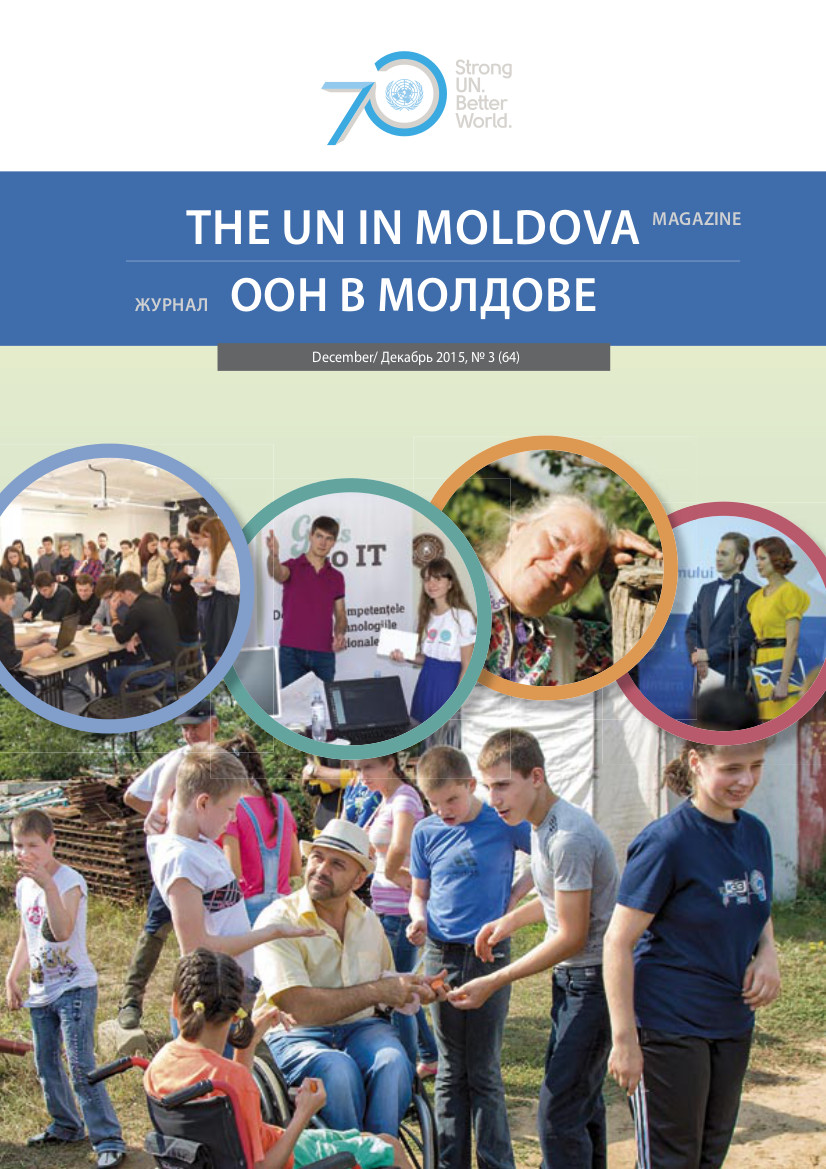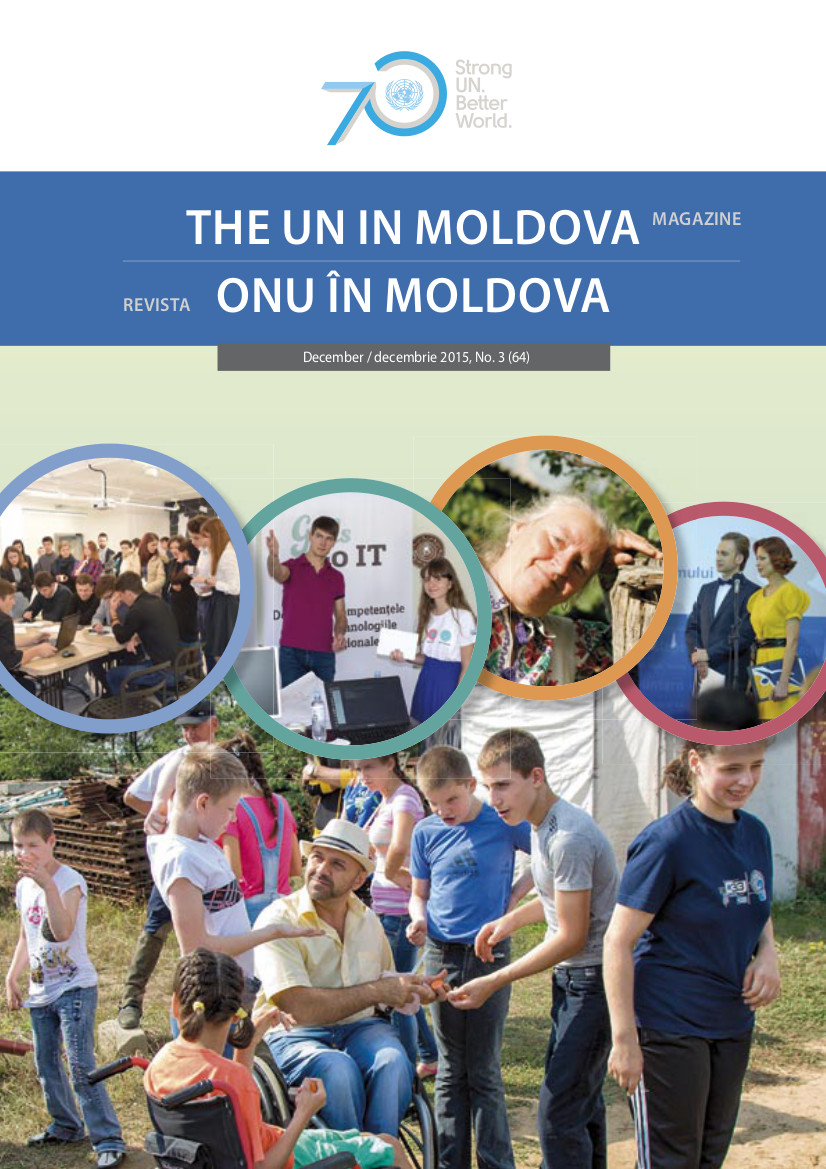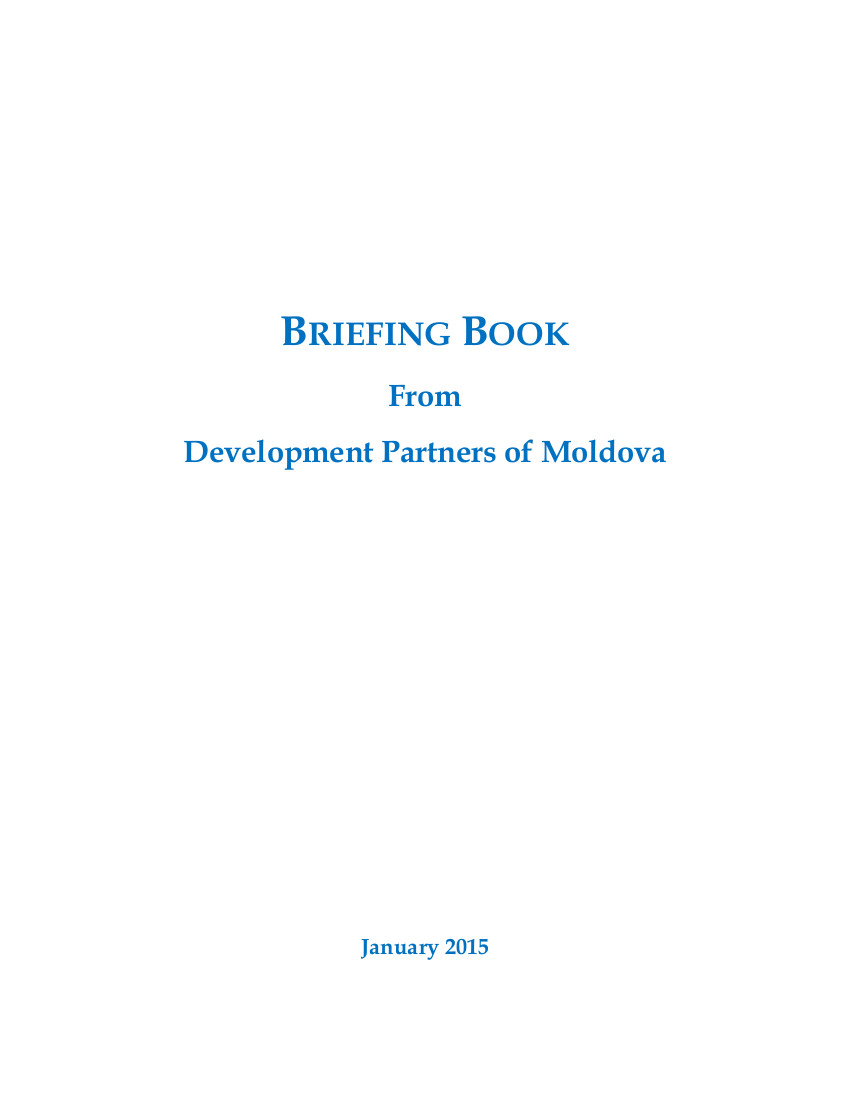Two (2) External Collaboration Contracts for data collection and legislation analysis for an overview of the informal economy in the Republic of Moldova
Vacancy Number: UN14/00732
| Location: | Chisinau, Moldova |
| Application Deadline: | 21 Nov 2014, 23:59 (GMT+2:00) |
| Reference to the project: | International Labour Organization |
| Expected Duration of Assignment: | two months |
|
Supporting Documents: Terms of Reference |
|
Background
The share of the informal economy is typically estimated in the range of 30 to 50 per cent of the official GDP in the Central and Eastern European region. Inadequate economic and social policies, the lack of appropriate legal and institutional framework, poor enforcement of regulations, reduced confidence into institutions and excessive administrative procedures, combined with economic downturn are the main drivers for a share of economic activity being moved towards informality, either by evading legal obligations when operating in formal economy or by a complete shift to informal economy whereby the economic activity/entity is utterly unregistered.
High instances of informal employment have various negative effects on the economy of the region as a whole, on working conditions generally, and on the policy making process. Endemic informal employment limits the effectiveness of employment as a tool to reduce poverty. Low tax revenues, due to the non-payment of payroll taxes, constrain the governments’ capacity to introduce effective labour market and social protection policies. In addition, the large informal economy and widespread practice of under-reporting of wages create serious problems for the coverage and financing of social security systems, thereby rendering these workers and their families unprotected against substantial social risks. For employers, informal economy brings unfair competition and uneven level playing field. For employees, working in the informal economy means being confined in an activity which is low paid and precarious. Informal employees are generally not organized and labour inspections may not have the means to reach out.
The ILO has identified the formalization of the informal economy as one of eight areas of critical importance (ACI). A standard-setting item on facilitating transitions from the informal to the formal economy was discussed by the International Labour Conference in 2014 and will continue in 2015. In this context, the ILO is implementing a project which aims to contribute to the design and implementation of policies that, through the formalization of the economy, will improve the quality and productivity of jobs in the Republic of Moldova. An initial assessment of the informal economy in the country will provide the basis for development of strategies, policy design and advocacy to reach out to entrepreneurs and workers in the informal economy. Appropriate measures will be proposed for enterprises to achieve enabling environment for sustainable growth and for workers in informal employment to enjoy decent work. Along the implementation process, technical assistance will be provided to different partners, including social security institutions and labour inspectorates, to expand their outreach to the informal economy.
I. Description of work and expected outputs
Under the administrative supervision of the Director of ILO DWT/CO Budapest and the technical supervision of the specialists of ILO DWT/CO Budapest and in coordination with the ILO National Coordinator, the External Collaborators will perform the following tasks/outputs, acting as a team:
- Conduct a desk review of existing national and international research regarding the informal economy and undeclared work in the country;
- Collect available statistical data concerning the magnitude, depth and structure of the informal economy (see Annex 1);
- Collect information and draft the following short reports in English (max. 30 pages each), to serve as basis for the national overview on the informal economy that will be produced by an international consultant, covering the following issues:
a) National context (employment, social dialogue) and profile of the informal economy in the Republic of Moldova, reviewing both the prevalence of informal sector or informal employment in the formal sector, including a statistical approximation (see details in Annex 2), access to education/training;
b) Overview of the regulatory framework regarding business registration, administrative burdens; fiscal and parafiscal burdens; access to justice and rule of law; fair competition; access to financial services and “Interest rate spread”; access to technology; labour inspection and other inspections in law and in practice;
c) The definition, regulation and protection of non-standard forms of employment by law, collective agreements and practice, as well and the number of workers in such forms of employment (see details in Annex 3);
d) Cases of success and lessons learned from experiences of government institutions and social partners to reduce the size of undeclared work and to promote transitions from informality to formality. For example, outreach approaches to the informal economy involving public and private stakeholders, in particular social partners and reach-out experiences to vulnerable groups of workers or remote/ isolated areas.
- In collaboration with the National Coordinator, and under the supervision of the technical specialists, prepare questions and conduct interviews with relevant stakeholders, notably government institutions and social partners, to collect and verify information;
- Provide assistance, upon request, during fact finding missions of technical specialists, and in the validation workshop;
- Participate in and give short presentations on the above mentioned issues during the validation workshop which is foreseen to take place in the first quarter of 2015, and incorporate the comments of the participants and the results of the workshop, if applicable.
- Submit the draft technical reports with analysis to the ILO for comments and review it based on inputs received. The process of commenting/revision will be undertaken before and after the validation workshop. It may envisage several rounds to ensure the quality of product to the satisfaction of the ILO.
The current ToRs are complemented by other ToRs for developing a Technical report on extending social protection to the informal economy. They will all contribute to the national overview of the informal economy in Moldova.
All data and reports shall be submitted in English.
II. Delivery:
The consultants will submit the data collected and the technical reports with the analysis in draft form to the ILO for comments by 15 January 2014. The consultants will review the reports based on ILO comments received. The process of commenting/revision may envisage several rounds.
The pre-final draft will be submitted to the ILO for comments within 2 weeks after the validation workshop. Based on inputs received, if any, the consultants will finalize the document.
The External Collaborators shall strictly respect deadlines, failing of which payment shall be withheld according to ILO rules.
III. Quality/Content Control
ILO will have editorial control over the final version of the Report. The design of the Report shall be taken into most serious consideration as it is produced for further publishing.
IV. Required qualifications
Academic background:
University or Master degree in economics, statistics, finance or related field. University or Master degree in law, with preference to labour law.
Work experience:
Proven experience in collecting and analysing statistical data on socio-economic development, employment issues. Proven experience in analysing complex legislation, collective agreements and policies on industrial relations and employment issues.
Excellent knowledge of the Moldovan policy and legal context, with a particular reference to industrial relations, socio-economic development, employment.
Working experience with UN and other International or Regional Organizations and Donors in the area of research and analytical report development will be considered an asset
Excellent English and Romanian writing skills.
Application procedure:
Interested candidates are welcome to apply individually or in group of two by the 21st of November by sending through email (lipcanu@ilo.org) the following:
- Personal CV outlining the academic background and work experience relevant to the current ToRs, and
- Financial proposal (in USD, specifying the total amount for the work, including all related costs, such as fees, travel, communication, translation costs, etc.).
Disclaimer
Material appearing on this website may include advertising and other material submitted by UN Agencies in Moldova, and this website may provide links to other websites operated by UN Agencies in Moldova and/or third parties. It is the responsibility of such UN Agencies and third parties to ensure that material published on this website is accurate and free of omissions and that it complies with all relevant laws and regulations. UNDP Moldova disclaims all responsibility for any error, omission or inaccuracy in such material or its failure to comply with any relevant laws or regulations.
Material appearing on this website may include advertising and other material submitted by UN Agencies in Moldova, and this website may provide links to other websites operated by UN Agencies in Moldova and/or third parties. It is the responsibility of such UN Agencies and third parties to ensure that material published on this website is accurate and free of omissions and that it complies with all relevant laws and regulations. UNDP Moldova disclaims all responsibility for any error, omission or inaccuracy in such material or its failure to comply with any relevant laws or regulations.
 The UN in Moldova Quarterly Magazine (Issue No.3, 2015) - Russian - English
The UN in Moldova Quarterly Magazine (Issue No.3, 2015) - Russian - English The UN in Moldova Quarterly Magazine (Issue No.3, 2015) - Romanian - English
The UN in Moldova Quarterly Magazine (Issue No.3, 2015) - Romanian - English Development Partners Moldova Briefing Book
Development Partners Moldova Briefing Book